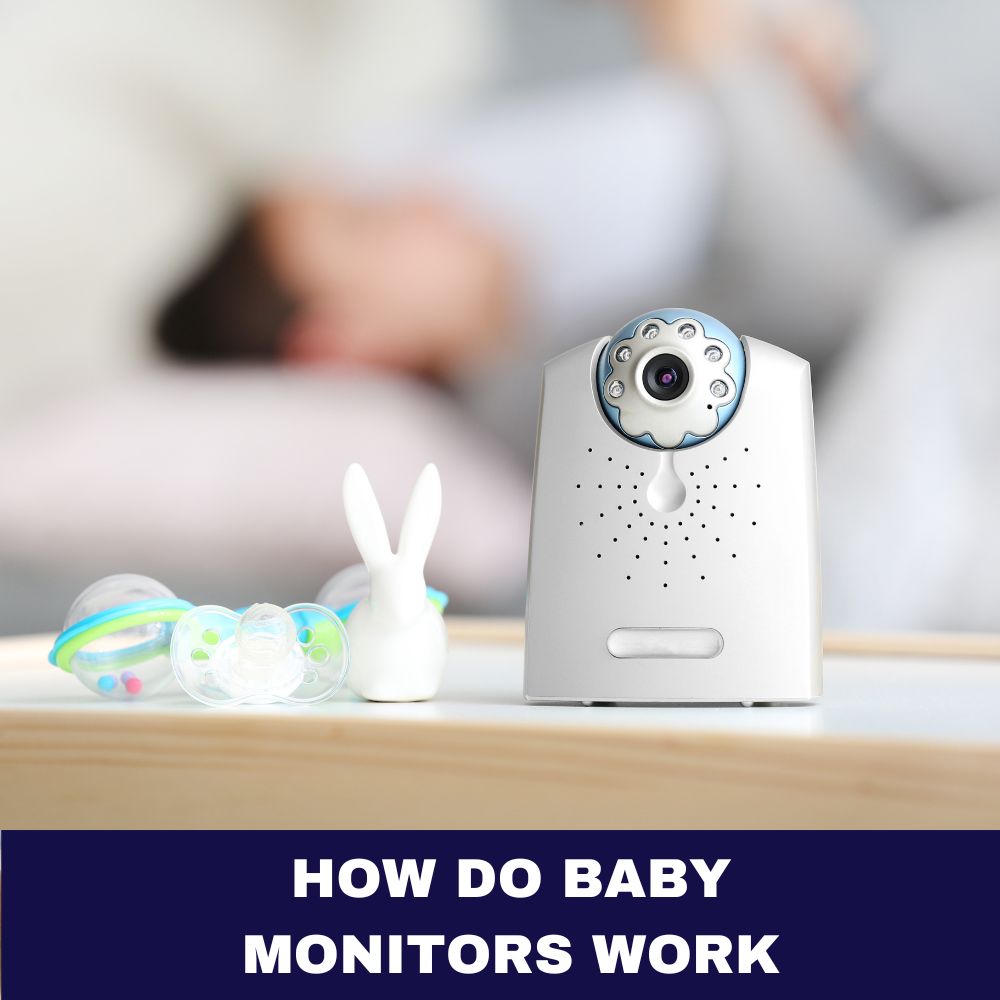As your little one blossoms into a rambunctious toddler, the once-peaceful nights you cherished can suddenly become disrupted by the perplexing phase known as the 18 month sleep regression. Don’t fret, dear parents – this temporary hurdle is a perfectly normal part of your child’s development, and with the right strategies, you can emerge victorious, reclaiming those coveted Zzzs.
In this comprehensive guide, we’ll unravel the mysteries of the 18 month sleep regression, providing you with the tools and insights to not only survive but thrive during this challenging period. So, grab a cozy blanket, a warm beverage, and let’s dive into the world of toddler sleep, together.
What is the 18 Month Sleep Regression?
Imagine your little one’s brain as a blossoming garden, bursting with new discoveries and developmental milestones. The 18 month sleep regression is akin to a sudden downpour, disrupting the once-tranquil slumber patterns that you’ve worked so hard to establish.
During this phase, your toddler may experience frequent nighttime awakenings, resistance to bedtime routines, and an overall disruption in their sleep cycles. It’s as if their little minds are buzzing with newfound curiosity and independence, making it challenging for them to settle down and drift off to dreamland.
While this regression can be frustrating for parents, it’s important to remember that it’s a natural part of your child’s growth and development. Just as they’re learning to walk, talk, and explore the world around them, their sleep patterns are also evolving.

Causes and Triggers of the 18 Month Sleep Regression
Seeking Independence
At 18 months, your little one is blossoming into a tiny explorer, eagerly asserting their newfound independence. This newfound sense of autonomy can manifest in various ways, including a resistance to bedtime routines and a desire to assert their will.
Separation Anxiety
As your toddler becomes more aware of their surroundings, they may experience separation anxiety, which can directly impact their sleep patterns. The thought of being apart from you, even for a few hours during the night, can be unsettling for their developing minds.
Teething
Those pesky little teeth can wreak havoc on your toddler’s sleep. The discomfort and pain associated with teething can make it challenging for your little one to settle down and drift off to dreamland.
Nap Transition
Around 18 months, many toddlers begin to transition from two naps to one, which can disrupt their sleep patterns and lead to overtiredness or difficulty falling asleep at night.
Signs and Symptoms of the 18 Month Sleep Regression
As a parent, you’ll likely recognize the telltale signs of the 18 month sleep regression. Here are some common indicators to watch out for:
- Frequent nighttime awakenings
- Early morning risings
- Bedtime battles and resistance to sleep routines
- Increased fussiness or clinginess
- Difficulty falling asleep or staying asleep
If you notice these signs, take a deep breath and remember that this is a temporary phase. With the right strategies and a healthy dose of patience, you can navigate these choppy waters and emerge with a well-rested little one (and a well-rested you!).
Next Step Advice: If you suspect your toddler is experiencing the 18 month sleep regression, it’s a good idea to start implementing some of the strategies we’ll discuss in the next section. Additionally, consider tracking your child’s sleep patterns to identify any patterns or triggers that may be contributing to the disruptions.
| Signs and Symptoms | Description |
|---|---|
| Frequent Night Wakings | Your toddler may wake up multiple times during the night, disrupting their sleep cycle. |
| Early Morning Wakings | Your little one may start waking up earlier than their usual wake-up time. |
| Bedtime Battles | Your toddler may resist going to bed, crying or protesting when it’s time for sleep. |
| Increased Fussiness or Clinginess | Your child may become more fussy, irritable, or clingy, especially during bedtime routines or when separated from you. |
| Difficulty Falling Asleep or Staying Asleep | Your toddler may struggle to fall asleep initially or may wake up frequently throughout the night, unable to self-soothe back to sleep. |
How Long Does the 18 Month Regression Last?
The duration of the 18 month sleep regression can vary from child to child, but typically, it lasts anywhere from 2 to 6 weeks. However, some parents may experience a more prolonged period of sleep disruptions that can last up to several months.
It’s important to remember that every child is unique, and the length of the regression can be influenced by various factors, such as your child’s temperament, development, and the strategies you implement to address the issue.
While it may seem like an eternity when you’re in the midst of sleepless nights, try to take comfort in the fact that this phase is indeed temporary. With patience, consistency, and the right approach, you’ll soon be able to navigate through this sleep regression and reclaim those peaceful nights once again.
Next Step Advice: If you’re struggling with the duration of the 18 month sleep regression, it’s essential to prioritize self-care and seek support when needed. Connect with other parents going through similar experiences, or consult with a sleep consultant or your pediatrician for personalized guidance.
Establishing a Consistent Bedtime Routine
In the midst of the 18 month sleep regression, consistency is your secret weapon. A predictable and calming bedtime routine can work wonders in signaling to your toddler that it’s time to wind down and prepare for slumber.
Here’s a sample bedtime routine that you can adapt to suit your family’s needs:
- Bath time: A warm bath can help soothe and relax your little one, making it easier for them to transition into sleep mode.
- Massage: A gentle massage with a calming lotion or oil can be a soothing addition to the bedtime routine.
- Story time: Reading a favorite book or two can be a comforting ritual that helps your toddler associate bedtime with positive experiences.
- Lullabies or calming music: Soft, soothing melodies can help create a peaceful ambiance and promote relaxation.
- Goodnight kisses and cuddles: A loving embrace and reassuring words can provide the security your toddler needs to drift off into dreamland.
Remember, consistency is key. By following the same routine each night, you’re creating a sense of predictability and security that can help alleviate some of the anxiety and resistance associated with the 18 month sleep regression.
Next Step Advice: Start implementing a consistent bedtime routine right away, and be patient as it may take some time for your toddler to adjust. Consider involving your child in the routine by allowing them to pick out their favorite book or stuffed animal, fostering a sense of ownership and participation.
Creating a Conducive Sleep Environment
Your toddler’s sleep environment can play a crucial role in promoting restful slumber. By optimizing their surroundings, you can create a sleep sanctuary that encourages relaxation and minimizes disruptions.
Here are some tips for creating a sleep-friendly environment:
- Temperature: Keep the room cool and comfortable, as toddlers tend to sleep better in slightly cooler temperatures.
- Lighting: Invest in blackout curtains or blinds to block out any external light sources that could disrupt your little one’s sleep.
- Noise control: Use a white noise machine or fan to mask household sounds that may startle or wake your toddler.
- Bedding: Choose breathable, comfortable sheets and pajamas to prevent overheating or discomfort during the night.
- Sleep aids: Consider introducing a stuffed animal or special blanket that your toddler can associate with sleep and comfort.
By creating a soothing and calming sleep environment, you’re setting the stage for peaceful slumber, even during the turbulent 18 month sleep regression.
Next Step Advice: Take some time to evaluate your toddler’s sleep environment and make any necessary adjustments. Consider involving your little one in the process by letting them choose their favorite stuffed animal or special blanket to use as a sleep aid.

Responding to Night Wakings and Bedtime Protests
One of the most challenging aspects of the 18 month sleep regression is dealing with frequent night wakings and bedtime protests. As frustrating as these moments can be, it’s important to approach them with patience and a consistent strategy.
Can I Let My 18 Month Old Cry It Out During a Sleep Regression?
The decision to let your toddler cry it out during the 18 month sleep regression is a personal one that depends on your parenting style and comfort level. While some parents find success with this approach, others may prefer gentler methods.
If you choose to let your toddler cry it out, it’s important to do so consistently and with a plan in place. Set reasonable time limits and be prepared to offer comfort and reassurance if your little one becomes overly distressed.
Can You Sleep Train During the 18 Month Regression?
Sleep training during the 18 month sleep regression can be a controversial topic. While some experts recommend avoiding formal sleep training during this phase, others believe it can be an effective way to establish healthy sleep habits, provided it’s done gently and consistently.
If you choose to sleep train during the regression, it’s important to remain patient and persistent. Regression-related sleep disruptions can make the process more challenging, but with time and consistency, you may be able to help your toddler learn to self-soothe and sleep through the night.
Ultimately, the decision to sleep train during this phase should be based on your parenting philosophy, your child’s temperament, and the guidance of your pediatrician or a certified sleep consultant.
Regardless of whether you choose to sleep train or not, it’s crucial to respond to night wakings and bedtime protests with empathy and consistency. Here are some strategies to try:
- Offer comfort and reassurance: A gentle pat on the back, a soothing voice, or a soft cuddle can go a long way in calming your little one.
- Use positive reinforcement: Praise and encourage your toddler when they exhibit desired sleep behaviors, such as staying in their bed or falling asleep independently.
- Implement a “pause” technique: If your toddler is protesting bedtime, calmly explain that you’ll be back in a few minutes, giving them a chance to settle down on their own.
- Be consistent: Stick to your chosen approach, whether it’s gentle sleep coaching, comforting techniques, or a combination of methods. Inconsistency can prolong the regression and confuse your toddler.
Remember, this phase is temporary, and with patience and consistency, you’ll eventually find the approach that works best for your family.
Next Step Advice: If you’re struggling with night wakings and bedtime protests, consider seeking support from other parents or a sleep consultant. Additionally, make sure to prioritize self-care during this challenging time, as a well-rested and resilient parent is better equipped to handle the demands of the 18 month sleep regression.
Promoting Positive Sleep Associations
During the 18 month sleep regression, your toddler may seek comfort and security in familiar objects or routines. By promoting positive sleep associations, you can help your little one feel safe and secure, making it easier for them to self-soothe and drift off to dreamland.
Here are some tips for creating positive sleep associations:
- Introduce a special stuffed animal or blanket: Choose a soft, cuddly companion that your toddler can associate with sleep and comfort.
- Use calming scents: Lavender or chamomile essential oils can create a soothing atmosphere and promote relaxation.
- Play soft lullabies or white noise: Familiar, gentle sounds can be incredibly comforting for your little one.
- Establish a calming pre-bedtime ritual: Whether it’s a warm bath, massage, or story time, a consistent ritual can signal to your toddler that it’s time to wind down.
By fostering these positive sleep associations, you’re creating a sense of familiarity and security that can help your toddler navigate the turbulence of the 18 month sleep regression with greater ease.
Next Step Advice: Involve your toddler in the process of creating positive sleep associations. Let them choose their special stuffed animal or pick out a calming scent they enjoy. This sense of ownership and participation can make the associations even more meaningful and effective.
| Sleep Association | Description |
|---|---|
| Special Stuffed Animal or Blanket | A soft, cuddly companion that your toddler can associate with sleep and comfort. |
| Calming Scents | Lavender or chamomile essential oils can create a soothing atmosphere and promote relaxation. |
| Soft Lullabies or White Noise | Familiar, gentle sounds can be incredibly comforting for your little one. |
| Calming Pre-bedtime Ritual | A consistent ritual, such as a warm bath, massage, or story time, can signal to your toddler that it’s time to wind down. |
Self-Care for Parents During the 18 Month Sleep Regression
While navigating the 18 month sleep regression, it’s crucial to prioritize self-care. As a parent, you’re likely juggling multiple responsibilities, and the added stress of sleep deprivation can take a toll on your physical and emotional well-being.
Managing Stress and Fatigue
Lack of sleep can leave you feeling drained, irritable, and overwhelmed. It’s important to acknowledge these feelings and take proactive steps to manage stress and combat fatigue.
Here are some self-care strategies to try:
- Practice relaxation techniques: Deep breathing exercises, meditation, or gentle yoga can help you unwind and de-stress.
- Get some fresh air: A short walk or some time spent outdoors can do wonders for your mental and physical health.
- Prioritize self-care activities: Whether it’s taking a warm bath, reading a book, or indulging in a favorite hobby, make time for activities that bring you joy and relaxation.
- Accept help and support: Don’t be afraid to ask for help from family, friends, or a professional support system. You don’t have to go through this alone.
Remember, taking care of yourself is not selfish; it’s essential for your well-being and your ability to be the best parent you can be during this challenging phase.
Next Step Advice: Make a list of self-care activities that you enjoy and find relaxing. Schedule them into your routine, even if it’s just for a few minutes each day. Additionally, reach out to your support system and don’t hesitate to ask for help when you need it.
| Self-Care Strategy | Description |
| Relaxation Techniques | Deep breathing exercises, meditation, or gentle yoga can help you unwind and de-stress. |
| Outdoor Time | A short walk or time spent outdoors can do wonders for your mental and physical health. |
| Enjoyable Activities | Make time for activities that bring you joy and relaxation, such as taking a warm bath, reading a book, or indulging in a favorite hobby. |
| Support System | Don’t be afraid to ask for help from family, friends, or a professional support system. You don’t have to go through this alone. |
Maintaining a Positive Mindset
While the 18 month sleep regression can be frustrating and exhausting, maintaining a positive mindset can make a world of difference. Here are some strategies to help you stay focused and optimistic:
- Reframe challenges as temporary phases: Remind yourself that this too shall pass, and you’ll emerge stronger on the other side.
- Celebrate small victories: Whether it’s a full night’s sleep or a successful bedtime routine, acknowledge and celebrate the wins, no matter how small.
- Practice self-compassion: Be kind to yourself and recognize that you’re doing the best you can in a challenging situation.
- Focus on the present moment: Rather than worrying about the future or dwelling on the past, try to stay present and mindful of the here and now.
- Connect with other parents: Sharing experiences and seeking support from those going through similar challenges can be incredibly uplifting.
By maintaining a positive mindset, you’ll be better equipped to navigate the ups and downs of the 18 month sleep regression with resilience and grace.
Next Step Advice: Start a gratitude journal or create a vision board that reminds you of your parenting goals and the joys of raising your little one. Surround yourself with positive affirmations and reminders of the temporary nature of this phase.

Seeking Support and Resources
Parenting can be an incredible journey, but it’s important to remember that you don’t have to go it alone. During the 18 month sleep regression, seeking support and utilizing available resources can make a world of difference.
Here are some options to consider:
- Connect with other parents: Join online forums, local parenting groups, or attend meetups to connect with others going through similar experiences. Sharing stories and swapping tips can be incredibly valuable.
- Consult a sleep consultant: A certified sleep consultant can provide personalized guidance and strategies tailored to your child’s specific needs and sleep patterns.
- Seek advice from your pediatrician: Your pediatrician can rule out any underlying medical issues and offer professional insights and recommendations.
- Utilize online resources: Reputable websites, blogs, and podcasts can be a wealth of information and support for parents navigating the 18 month sleep regression.
Remember, seeking support is a sign of strength, not weakness. By surrounding yourself with a network of knowledgeable professionals and a community of fellow parents, you’ll gain invaluable insights, encouragement, and the reassurance that you’re not alone in this journey.
Next Step Advice: Research local parenting groups or online forums dedicated to sleep and toddler development. Connect with other parents who are experiencing or have experienced the 18 month sleep regression, and don’t be afraid to ask for advice or share your own strategies.
Moving Forward: Beyond the 18 Month Sleep Regression
As you navigate through the turbulent waters of the 18 month sleep regression, it’s important to keep your eye on the horizon and look forward to calmer seas ahead.
Understanding the Temporary Nature of the Regression
While the sleepless nights and bedtime battles may feel never-ending, it’s crucial to remember that the 18 month sleep regression is, in fact, a temporary phase. Like all developmental milestones, this too shall pass.
As your little one’s brain continues to grow and develop, their sleep patterns will eventually settle, and you’ll once again experience the joy of peaceful nights and well-rested mornings.
The key is to remain patient, consistent, and focused on the strategies that work best for your family. With time and perseverance, you’ll emerge on the other side of this regression, armed with new parenting skills and a deeper appreciation for the precious gift of a good night’s sleep.
Next Step Advice: Create a visual reminder or countdown to help you stay focused on the temporary nature of this phase. It could be a calendar where you mark off the days, or a simple note reminding you that “this too shall pass.” Celebrating small victories along the way can also help you maintain a positive perspective.
Celebrating Milestones and Maintaining Healthy Sleep Habits
As you emerge from the 18 month sleep regression, it’s essential to celebrate your little one’s developmental milestones and continue fostering healthy sleep habits. After all, good sleep is a vital component of your child’s overall well-being and growth.
Here are some tips to help you maintain healthy sleep patterns:
- Stick to a consistent bedtime routine: The familiar rituals and predictability can provide a sense of security and comfort for your toddler.
- Encourage independent sleep: While cuddles and comforting are essential, gradually help your little one learn to self-soothe and fall asleep independently.
- Prioritize nap time: Adequate daytime rest can prevent overtiredness, which can lead to bedtime battles and night wakings.
- Maintain a sleep-friendly environment: Continue to optimize your toddler’s sleep space, ensuring it’s cool, dark, and free from distractions.
By celebrating your child’s milestones and maintaining healthy sleep habits, you’re setting the stage for a lifetime of good sleep patterns and well-being.
Next Step Advice: Consider creating a “sleep success” chart or reward system to positively reinforce good sleep behaviors. Celebrate each milestone with a special activity or treat, and involve your toddler in the process of maintaining healthy sleep habits.
How Much Sleep Does an 18 Month Old Need?
As your toddler navigates the 18 month sleep regression, it’s essential to ensure they’re getting the recommended amount of sleep for their age and development.
According to the National Sleep Foundation, an 18 month old typically needs:
- 11 to 14 hours of total sleep per day
- 1 to 3 hours of daytime nap(s)
However, it’s important to remember that every child is unique, and their sleep needs may vary slightly. Some toddlers may require more or less sleep, depending on their individual growth patterns, activity levels, and overall development.
During the 18 month sleep regression, it’s not uncommon for your little one’s sleep patterns to be disrupted, leading to shorter naps or less consolidated nighttime sleep. However, by implementing the strategies outlined in this guide, you can help your toddler get the rest they need to thrive.
Next Step Advice: Keep a sleep log or journal to track your toddler’s sleep patterns and identify any potential issues or areas for improvement. If you notice persistent sleep deprivation or significant deviations from the recommended sleep guidelines, consult with your pediatrician for personalized advice.
Tips for Surviving the 18 Month Sleep Regression
While navigating the 18 month sleep regression can be challenging, there are several practical tips and strategies that can help you and your little one not just survive, but thrive during this phase.
Plan for Lots of Active Play
Toddlers have boundless energy and curiosity, and providing ample opportunities for active play can be incredibly beneficial during the 18 month sleep regression. Physical activity not only helps burn off excess energy but also promotes better sleep by releasing endorphins and promoting relaxation.
Pay Attention to Wake Windows
Wake windows refer to the amount of time your toddler is awake between sleep periods. During the 18 month sleep regression, it’s crucial to pay attention to these windows and ensure your little one isn’t becoming overtired or undertired, as both can contribute to sleep disruptions.
H3: Allow Some Independence!
At 18 months, your toddler is likely asserting their newfound independence and autonomy. While it can be challenging, try to embrace this development by offering age-appropriate choices and opportunities for exploration. This sense of control can help alleviate some of the anxiety and resistance associated with the sleep regression.
Remember that Toddlers Still Need Sleep!
Despite their boundless energy and curiosity, toddlers still require adequate rest for proper growth and development. During the 18 month sleep regression, it’s essential to prioritize sleep and create an environment that promotes restful slumber.
By following these tips and strategies, you’ll be better equipped to navigate the ups and downs of the 18 month sleep regression, while also fostering your toddler’s overall well-being and development.
Next Step Advice: Create a daily schedule or routine that incorporates active playtime, age-appropriate independence, and consistent nap and bedtimes. Be flexible and adjust as needed, but stick to the overall structure to help your toddler establish healthy sleep habits.
Conclusion
Congratulations, dear parents! You’ve made it through this comprehensive guide on navigating the 18 month sleep regression. While the journey may have been filled with sleepless nights and endless cuddles, you now have a arsenal of strategies and insights to help you emerge victorious.
Remember, the 18 month sleep regression is a temporary phase, and with patience, consistency, and the right approach, you’ll soon reclaim those blissful nights of restful slumber. Celebrate your victories, no matter how small, and never hesitate to seek support from fellow parents, professionals, or trusted resources.
As you move forward, continue to prioritize self-care, maintain a positive mindset, and foster healthy sleep habits for your little one. The rewards of seeing your toddler thrive and develop will make every sleepless night worth it.
So, take a deep breath, embrace the challenges, and remember that you’ve got this, one bedtime story at a time. Sweet dreams, dear parents – may your nights be filled with peaceful slumber and the gentle sounds of your little one’s contented breaths.
FAQ – 18 Month Sleep Regression
Is the 18 month sleep regression inevitable for all toddlers?
No, the 18 month sleep regression is not an inevitable experience for all toddlers. While it is a common phase that many parents encounter, some toddlers may sail through this developmental stage without significant sleep disruptions.
The severity and duration of the 18 month sleep regression can vary greatly from child to child, depending on factors such as temperament, developmental pace, and individual sleep needs. Some toddlers may experience only mild sleep disturbances, while others may face more severe challenges with bedtime battles and frequent night wakings.
It’s important to remember that every child is unique, and their sleep patterns can be influenced by various factors, including teething, separation anxiety, and cognitive leaps. If your toddler does experience the 18 month sleep regression, it does not necessarily mean you’ve done anything wrong as a parent. It’s simply a normal part of their development, and with the right strategies and patience, it can be navigated successfully.
Can sleep training during the 18 month regression make things worse?
Sleep training during the 18 month sleep regression can be a controversial topic, with differing opinions among experts and parents. While some believe that sleep training during this phase can be effective in establishing healthy sleep habits, others caution that it may exacerbate the challenges associated with the regression.
The success of sleep training during the 18 month sleep regression largely depends on your child’s temperament, the specific sleep training method used, and your consistency in implementing it. Some toddlers may respond well to gentle sleep coaching techniques, while others may find the process more distressing, leading to increased bedtime battles and night wakings.
If you choose to sleep train during this phase, it’s essential to do so gently and consistently, while also being prepared to adjust your approach as needed. It’s crucial to watch for signs of increased stress or anxiety in your toddler and be willing to pause or modify the sleep training method if it seems to be causing more harm than good.
Ultimately, the decision to sleep train during the 18 month regression should be made in consultation with your pediatrician or a certified sleep consultant, taking into account your child’s unique needs and temperament.
How can I maintain a consistent bedtime routine when traveling or during disruptions?
Maintaining a consistent bedtime routine can be challenging when traveling or during other disruptions to your toddler’s regular schedule. However, it’s essential to try to replicate the routine as closely as possible to provide a sense of familiarity and security for your little one.
Here are some tips for maintaining a bedtime routine while on the go:
- Pack familiar sleep aids: Bring along your toddler’s favorite stuffed animal, blanket, or any other sleep-associated items that can help them feel more comfortable and relaxed in a new environment.
- Recreate the routine: As much as possible, try to follow the same sequence of events as your regular bedtime routine, such as bath time, story time, and cuddles. This can help signal to your toddler that it’s time to wind down and prepare for sleep.
- Use white noise or familiar sounds: Bring along a white noise machine or download familiar lullabies or bedtime stories on your phone or tablet to recreate the auditory cues associated with sleep.
- Maintain consistent timing: While the location may change, try to keep the timing of your toddler’s bedtime routine as consistent as possible. This can help regulate their internal clock and make it easier to transition back to the regular routine once you return home.
- Be flexible: While consistency is important, it’s also essential to be flexible and adaptable when traveling or during disruptions. Prioritize your toddler’s comfort and well-being, and be prepared to make adjustments as needed.
Remember, even small efforts to maintain familiarity and routine can go a long way in helping your toddler feel secure and promoting better sleep during times of disruption.
Can teething contribute to the 18 month sleep regression?
Yes, teething can definitely contribute to the challenges associated with the 18 month sleep regression. In fact, teething is often cited as one of the common triggers for sleep disruptions during this developmental phase.
Teething can cause discomfort, pain, and irritability in toddlers, making it difficult for them to settle down and sleep through the night. The emergence of new teeth can lead to increased drooling, gum sensitivity, and a general feeling of unease, all of which can interfere with their ability to fall and stay asleep.
Additionally, the teething process can cause your toddler to wake up more frequently during the night, seeking comfort or relief from the discomfort they’re experiencing.
To help alleviate the impact of teething on your toddler’s sleep during the 18 month sleep regression, you can try the following strategies:
- Provide appropriate pain relief: Consult with your pediatrician about safe pain relief options, such as over-the-counter pain medication or teething gels, to help reduce discomfort.
- Use cold or frozen teethers: Chilled or frozen teething rings or washcloths can provide soothing relief for sore gums.
- Massage gums gently: Using a clean finger or a soft, damp cloth, gently massage your toddler’s gums to alleviate pressure and discomfort.
- Offer extra cuddles and comfort: During this challenging phase, your toddler may need extra comfort and reassurance. Provide plenty of cuddles, rocking, or other soothing techniques to help them cope with the discomfort.
While teething can certainly contribute to sleep disruptions during the 18 month regression, it’s important to remember that this phase is temporary. By addressing the teething discomfort and implementing appropriate sleep strategies, you can help your toddler navigate this period more smoothly.
How can I involve my partner or co-parent in managing the 18 month sleep regression?
Involving your partner or co-parent in managing the 18 month sleep regression can be incredibly beneficial for everyone involved. Navigating this challenging phase as a team can not only provide emotional support but also ensure consistency in the strategies and routines you implement.
Here are some tips for involving your partner or co-parent:
- Communicate openly: Have open and honest conversations about the challenges you’re facing, and discuss your goals and expectations for managing the sleep regression. Ensure you’re on the same page regarding the approaches you want to take.
- Divide responsibilities: Decide on a system where you can share responsibilities, such as taking turns attending to night wakings or implementing bedtime routines. This can help alleviate the burden on one parent and prevent burnout.
- Provide encouragement and support: Offer words of encouragement and support to each other during the difficult moments. Celebrate small victories together and remind each other that this phase is temporary.
- Attend workshops or seek guidance together: Consider attending workshops or seeking guidance from a certified sleep consultant together. This can help you both learn effective strategies and ensure consistency in your approach.
- Take breaks: Ensure that each parent gets regular breaks and opportunities for self-care. This can help manage stress and fatigue, making it easier to handle the challenges of the 18 month sleep regression.
By working together as a team, you can provide a united front and create a consistent, supportive environment for your toddler during this phase. Remember, open communication, shared responsibilities, and mutual support can go a long way in helping you navigate the 18 month sleep regression successfully.












